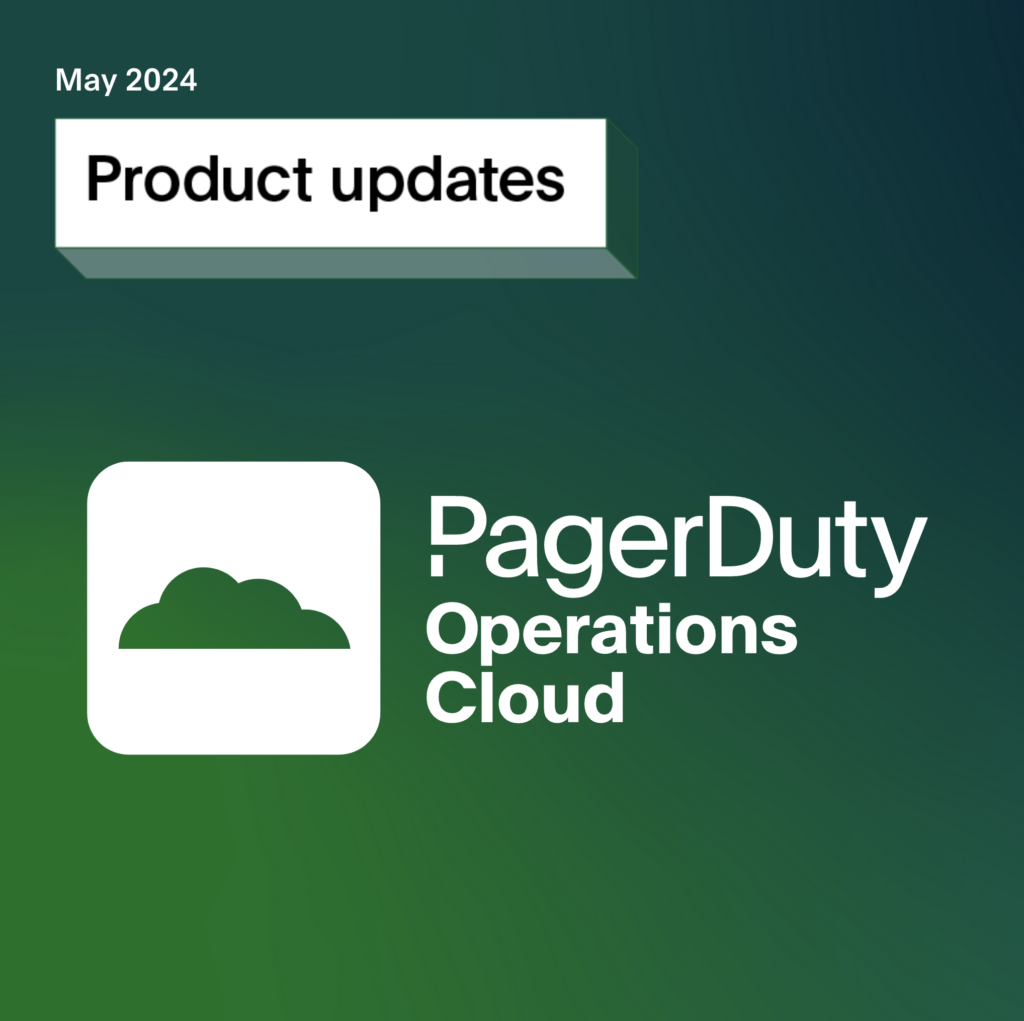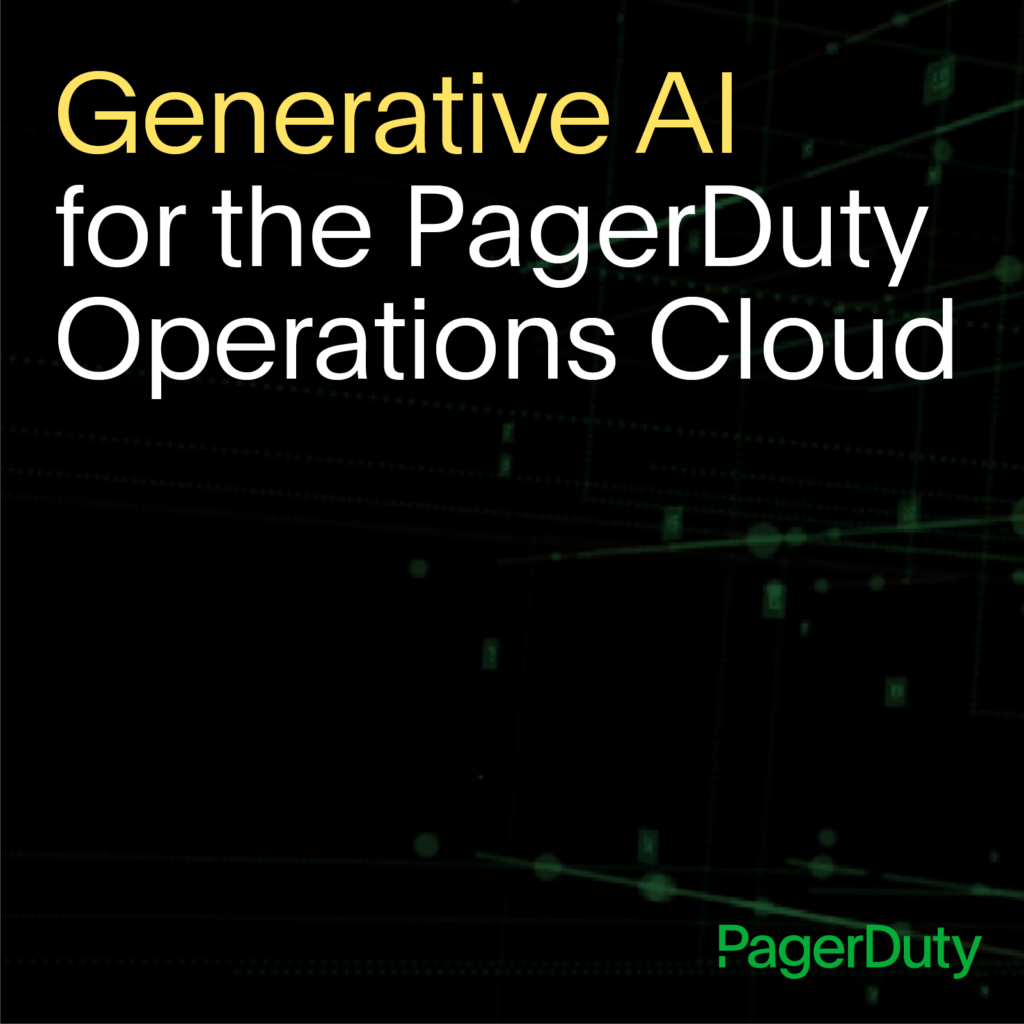- PagerDuty /
- Blog /
- Announcements /
- Domain-Agnostic AIOps is the Future and PagerDuty is Joining the Movement
Blog
Domain-Agnostic AIOps is the Future and PagerDuty is Joining the Movement
At PagerDuty, we have been heavily focused on developing our Artificial Intelligence for IT Operations (AIOps) solution. This has involved a lot of investment in our platform and a continued commitment to ensuring it delivers value to our customers as quickly as possible. With that, we’re delighted that Gartner named PagerDuty as a Representative Domain-Agnostic AIOps Vendor in its 2021 Market Guide for AIOps Platforms.
In the Market Guide, Gartner estimates the size of the AIOps market to be $900M to $1.5B in 2020, and that it will experience a Compound Annual Growth Rate (CAGR) of 15% from 2020-2025. We are excited to be a part of this growth as our investment in our AIOps solution gains wider recognition.
Defining Domain-Agnostic AIOps
AIOps means a lot of different things to a lot of different people, so it can be difficult to pin down a single definition. Gartner describes the market as follows: “AIOps platforms enhance a broad range of IT practices, including I&O, DevOps, SRE, and service management.” AIOps capabilities “include anomaly detection, diagnostic information, event correlation, and root cause analysis (RCA) to improve monitoring, service management, and automation tasks.”
So what does it mean to be domain-agnostic in AIOps? It means that PagerDuty’s AIOps solution can be used to do event correlation and alert noise reduction across all parts of the IT infrastructure, including applications, compute and storage, network, and digital experience channels. Being recognized as a Domain-Agnostic AIOps Vendor is an acknowledgement of our team’s hard work.Gartner has observed a major shift in the market from domain-specific AIOps to domain-agnostic AIOps. This means AIOps is no longer a tool just for IT Ops. It can be used by teams across an organization, including SRE, DevOps, SecOps, and more.
Critical AIOps Capabilities
With the shifting nature of the AIOps space in mind, according to Gartner, there are five central functions for successful AIOps platforms in its Market Guide:
- Ingestion: “Ingest, index and normalize events or telemetry from multiple domains, vendors or sources.” The AIOps platform can also carry out real-time analysis of streaming data and historical analysis of stored data.
- Topology: “AIOps platforms discover and assemble unified topology of IT assets, including applications, across domains.”
- Correlation: “The AIOps platform correlates and compresses events across telemetry domains or sources, reducing unnecessary human intervention. The correlation combines time and topology to group related events.”
- Recognition: “An AIOps platform processes the event and telemetry data to detect or predict important events or incidents.” The PagerDuty platform continually learns and refines its machine learning model based on patterns in both the machine data from monitoring tools and the human response data captured by PagerDuty’s incident management tools.
- Remediation: This requires continuous learning and the improvement of associations between important events and the operations response. “The AIOps platform might offer a recommendation, automate a response, or trigger an external automation system.”
However, despite the buzz around AIOps, we know that getting value from the technology quickly can be a challenge for many organizations. Gartner highlighted that time-to-value is a common complaint. This matches up with our own research, which found that more than half (52%) of ITOps and DevOps professionals said ROI on AIOps takes a long time, and almost a third (31%) said setting up their AIOps solution was more difficult than expected.
At PagerDuty, one thing we do differently is making sure that customers can get up and running with our AIOps solution as quickly as possible—without needing specialist domain knowledge. Our intuitive platform with built-in machine learning capabilities puts controls into the hands of subject matter experts to configure both AI and event rules, without needing data science knowledge. This means organizations don’t need to invest in expensive training or hire specialized data scientists to get value from the platform. PagerDuty also works out of the box and delivers value in hours or days—rather than months or years—allowing businesses to rapidly tune their systems and drive business improvements.
You can also build and customize workflows with the extensible PagerDuty APIs, integrating data—including operational, security and incident data—from existing tools. This helps you to gain insights from the entire IT infrastructure around performance, operational health, and more. We combine insights from the PagerDuty platform with human response data, so our machine learning model for AIOps is constantly refined, not only based on new machine data, but also based on how your service owners respond to and remediate events. This ensures accurate results, particularly around intelligent alert grouping, response recommendations, and opportunities for auto-remediation through our Event Intelligence solution.
With over 500+ native integrations, including widely used monitoring tools like AWS CloudWatch, Crowdstrike, Datadog, Elastic, New Relic, Sumo Logic, and Zabbix, PagerDuty easily slots into a company’s existing technology stack. This means organizations don’t have to change their processes, and can respond their way with the tools that they like to use best.
To read the full Gartner market report, visit here. To see how PagerDuty’s solution for AIOps can help your organization, contact your account manager or sign up for a 14-day free trial today.
Gartner, Market Guide for AIOps Platforms, 6 April 2021, Pankaj Prasad, Padraig Byrne, Josh Chessman
Gartner does not endorse any vendor, product or service depicted in its research publications and does not advise technology users to select only those vendors with the highest ratings or other designation. Gartner research publications consist of the opinions of Gartner’s research organization and should not be construed as statements of fact. Gartner disclaims all warranties, expressed or implied, with respect to this research, including any warranties of merchantability or fitness for a particular purpose.


